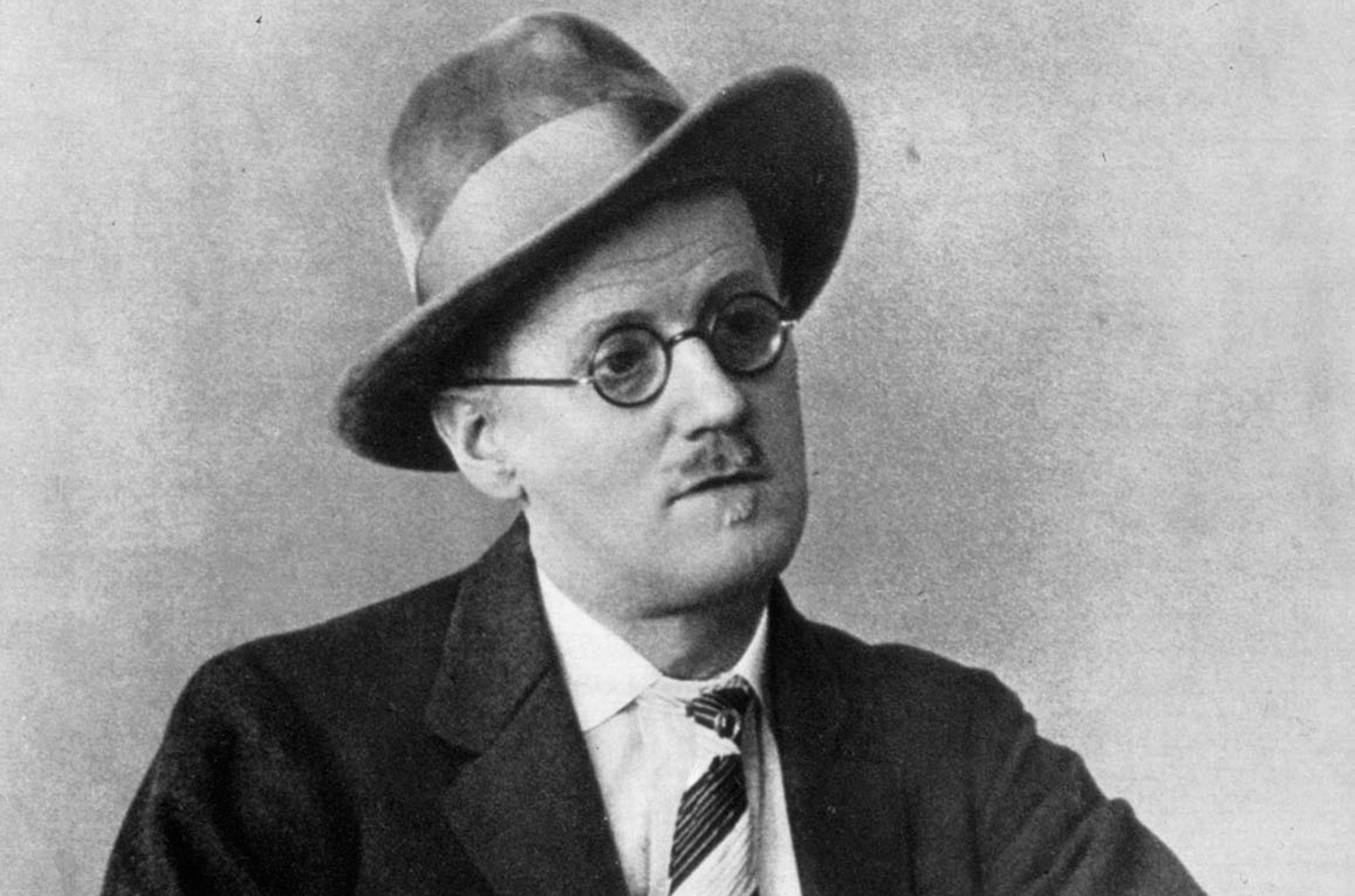
James Augustine Aloysius Joyce (1882-1941) was an Irish author and one of the most influential figures of the Modernist literature movement. His work is notable for its innovative use of language, Joyce would adapt English to his own ends to depict reality with an emotional accuracy that the standard novel form could not accomplish.
Though his writing can be difficult at first, it's worth it for the moments where he'll hit you with a phrase of such beauty and clarity that it makes you wish all writing could be like this. He also wrote some of the most horrifying love letters of all time, look them up at your own risk. It's also worth noting that he did all of this with terrible vision and his eyes were in constant pain, by the end of his life he was blind in his left eye, with 10% sight in his right, but would still write with crayon on giant pieces of paper.
Though Joyce wrote a number of poems, essays, assorted short stories and a play, the following are considered to be his major works:
Dubliners (1914) - A collection of short vignettes depicting different aspects of life in Dublin at the turn of the 20th Century. Joyce largely turns to scenarios outside of polite society, the stories starting from the perspective of children and teenagers and eventually shifting to being about adults and the elderly. This one's definitely worth a read but isn't as Joyce-y as his other stuff.
A Portrait of the Artist as a Young Man (1916) - A semi-autobiographical novel that chronicles the youth and young adulthood of Stephen Dedalus, a stand-in for Joyce. A Portrait is an excellent showcase of Joyce's ability to portray the inner worlds of his characters, and would be the first of his major novels to experiment with the stream-of-consciousness form that would be a hallmark of his later works.
Ulysses (1922) - The entirety of human experience is compressed within 24 hours in Dublin, Leopold Bloom goes on a Homeric odyssey across the city, his every thought depicted in real time. This gigantic novel, controversial in its time for its uncensored approach, touches on everything from the digestive system to the cosmic unknown. Joyce intended to create the greatest work of the English language and I say he accomplished it, a startlingly inventive work that affirms the infinite potential of the human mind.
Finnegans Wake (1939) - ?
I need to read Ulysses again, I read it when I was in school and it was cool but I feel like I would enjoy it much more now that I’m older and have a better understanding of life.
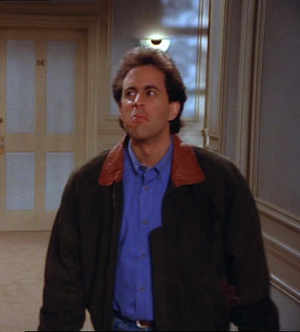 Jerry Seinfeld
Jerry SeinfeldI need to read Ulysses again, I read it when I was in school and it was cool but I feel like I would enjoy it much more now that I’m older and have a better understanding of life.
that one is cool but overrated
 Jerry Seinfeld
Jerry SeinfeldAny others you’d recommend?
Dubliners and A Portrait of the Artist as a Young Man
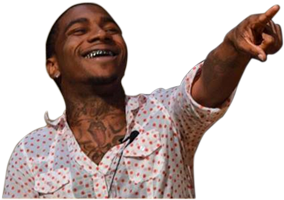
Need to get to his catalog
 im running through William Gass atm and then William Gaddis afterwards and then probably Don Delilo
im running through William Gass atm and then William Gaddis afterwards and then probably Don Deliloy’all read his love letters?
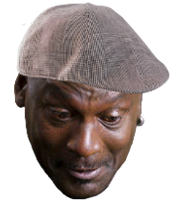
straight gng s*** lmaooo
edit just saw they got mentioned in op
 math fifty
math fiftyFinnegans Wake - ?
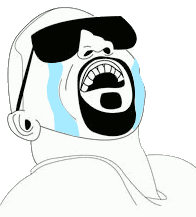
away at last a long the // riverrun past eve and adams from swerve of shore to bend of bay brings us by a commodious vicus of recirculation back to howth castle and environs
 Jerry Seinfeld
Jerry SeinfeldI need to read Ulysses again, I read it when I was in school and it was cool but I feel like I would enjoy it much more now that I’m older and have a better understanding of life.
If you like Ulysses you should check out this
Ulysses is basically the mysterious music of the classics genre
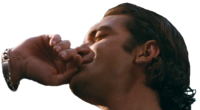
Joyce basically made that s*** like “damn these double entendres flying over your head huh?”
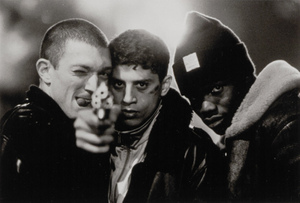 Grenouille
GrenouilleUlysses is basically the mysterious music of the classics genre

Joyce basically made that s*** like “damn these double entendres flying over your head huh?”
How is it? As someone who’s finished Gravity’s Rainbow, is that one likely to make me feel like I’m about to have an aneurysm as well?
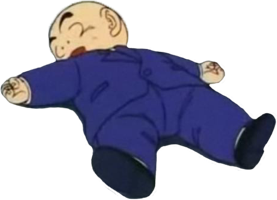
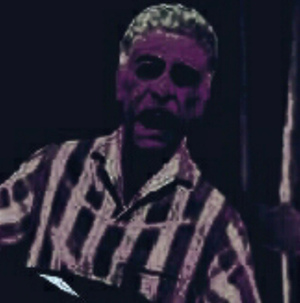 CrimsonArk
CrimsonArkHow is it? As someone who’s finished Gravity’s Rainbow, is that one likely to make me feel like I’m about to have an aneurysm as well?

Finnegans Wake will do that to you for the entire duration, here's the first page:
'riverrun, past Eve and Adam’s, from swerve of shore to bend of bay, brings us by a commodius vicus of recirculation back to Howth Castle and Environs. Sir Tristram, violer d’amores, fr’over the short sea, had passencore rearrived from North Armorica on this side the scraggy isthmus of Europe Minor to wielderfight his p\*\*\*\*olate war: nor had topsawyer’s rocks by the stream Oconee exaggerated themselse to Laurens County’s gorgios while they went doublin their mumper all the time: nor avoice from afire bellowsed mishe mishe totauftauf thuartpeatrick: not yet, though venissoon after, had a kidscad buttended a bland old isaac: not yet, though all’s fair in vanessy, were sosie sesthers wroth with twone nathandjoe. Rot a peck of pa’s malt had Jhem or Shen brewed by arclight and rory end to the regginbrow was to be seen ringsome on the aquaface. The fall (bababadalgharaghtakamminarronnkonnbronntonnerronntuonnthunntrovarrhounawnskawntoohoohoord-enenthurnuk!) of a once wallstrait oldparr is retaled early in bed and later on life down through all christian minstrelsy. The great fall of the offwall entailed at such short notice the pftjschute of Finnegan, erse solid man, that the humptyhillhead of humself prumptly sends an unquiring one well to the west in quest of his tumptytumtoes:and their upturnpikepointandplace is at the knock out in the park where oranges have been laid to rust upon the green since devlinsfirst loved livvy.'
 CrimsonArk
CrimsonArkHow is it? As someone who’s finished Gravity’s Rainbow, is that one likely to make me feel like I’m about to have an aneurysm as well?

The biggest issue with Ulysses is that it’s super intertextual. You can’t go more than a few pages without references to either epic Greek myth, 19th century Irish politics, Shakespeare, Mozart, or something else extremely highbrow. This is compounded when you consider that the book is over 700 pages long!
To get the most out of it, the best bet is to probably pick up the book and a companion piece or a reference material that breaks down each chapter as you’re reading it as if you’re back in school studying English Lit.
 Grenouille
GrenouilleThe biggest issue with Ulysses is that it’s super intertextual. You can’t go more than a few pages without references to either epic Greek myth, 19th century Irish politics, Shakespeare, Mozart, or something else extremely highbrow. This is compounded when you consider that the book is over 700 pages long!
To get the most out of it, the best bet is to probably pick up the book and a companion piece or a reference material that breaks down each chapter as you’re reading it as if you’re back in school studying English Lit.
Yeah, idk, might get into it eventually, but I’m not too big of a fan of overly referential works, unless it can operate on its own accord and said references, if understood, serve to broaden appreciation of the work.
Unless of course it’s historical context is key, or if it’s a work of its time.
 CrimsonArk
CrimsonArkYeah, idk, might get into it eventually, but I’m not too big of a fan of overly referential works, unless it can operate on its own accord and said references, if understood, serve to broaden appreciation of the work.
Unless of course it’s historical context is key, or if it’s a work of its time.
I mean it is a rewarding book but yeah it’s tough work. It’s probably for the best to swerve for now, especially if you’ve just finished a Pynchon book! I personally like to delve back into some easier reading after finishing a heavy classic.
Final point on Ulysses: the title itself is actually the Latin equivalent for Odysseus, who is the main hero in Homer’s The Odyssey — epic Greek poem about Odysseus’ trials and tribulations to return home to his wife after war. The protagonist of Joyce’s novel has the same backdrop returning home to Ireland.
So yeah… very intertextual!
 Trap a holic
Trap a holicaway at last a long the // riverrun past eve and adams from swerve of shore to bend of bay brings us by a commodious vicus of recirculation back to howth castle and environs
fire
 KFA 🏛️Sep 27, 2022·2 replies
KFA 🏛️Sep 27, 2022·2 repliesIs he really that difficult to get into?
Really wanna read something from him, but what I've heard and read is holding me back.
Dubliners a good place to start or skip that one?
 KFA
KFAIs he really that difficult to get into?
Really wanna read something from him, but what I've heard and read is holding me back.
Dubliners a good place to start or skip that one?
Dubliners and A Portrait of the Artist as a Young Man are both pretty easy to get into, it's definitely worth reading Dubliners, seeing his style evolve over his career is very interesting
Ulysses is VERY dense and requires paying a lot of attention to keep up with the plot, plus it's packed with all kinds of cultural/historical references that a modern reader might not understand, and employs some very experimental approaches to prose that can obscure the narrative at some points, it's absolutely worth it though
Finnegans Wake is the most difficult work in the entire English language